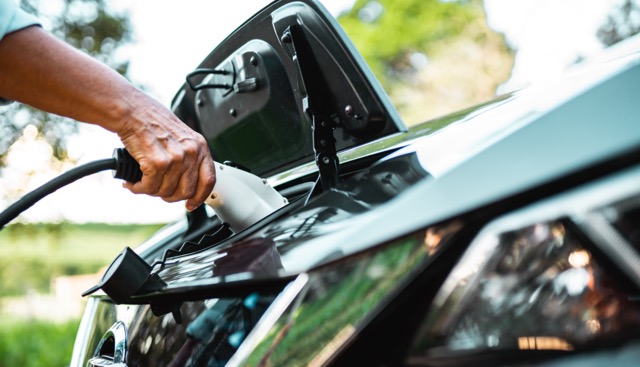Thinking about a new car in Australia? As of January 1, 2025, the New Vehicle Efficiency Standard (NVES) is shaking up the market, pushing car companies to supply more fuel-efficient and electric vehicles. While it promises lower running costs and reduced emissions, the industry is seeing mixed results. But beyond the NVES, did you know you could also qualify for a significant tax break on electric vehicles if you acquire one through a novated lease?
All new cars sold in Australia are now required to meet the New Vehicle Efficiency Standard (NVES), as of 1 January 2025. This incentivises car companies to supply more fuel-efficient cars, which not only reduces carbon emissions but also reduces running costs for drivers.
While it's still early days, there have been mixed reviews about the implementation of the NVES.
The Federal Chamber of Automotive Industries (FCAI) reported that only 181,797 new vehicles were sold in the first two months of 2025, compared to 194,805 in the first two months of 2024 – and said low consumer demand was placing pressure on the NVES, as consumers still preferred traditional vehicles, which tend to be cheaper upfront, to electric vehicles (EVs), which tend to be dearer.
The FCAI reported there are now 88 EV models supplied to the Australian market, but demand has not kept pace.
However, the Electric Vehicle Council said the NVES was helping more Australians switch to lower-emissions vehicles, with data showing that battery electric vehicles and plug-in hybrid vehicles represented 11.3% of new car sales in February, compared to 9.6% the year before.
“Electric vehicle sales in Australia remain resilient at a time when new car sales are trending downwards and the high cost of living continues to hit families hard,” CEO Julie Delvecchio said.
“The NVES is helping Australians cut the cost of driving a car by helping them break free from volatile petrol prices. Owning an EV can save drivers up to $3,000 per year on fuel and maintenance costs.”
The broader range of EVs entering the Australian market, including BYD and MG EV, has introduced more affordable offerings to the market, with over 40 new models expected in Australia by the end of the year.
Tax break available for EVs
According to the Australian Taxation Office, businesses may be exempt from paying fringe benefits tax (FBT) on eligible EVs for private use. This could impact anyone purchasing an EV through a novated lease, assuming these conditions are met:
- The first time the car was both held and used was on or after 1 July 2022.
- The car was used by a current employee or their associates (such as family members).
- Luxury car tax was not payable on the importation or sale of the car.
You may be able to capitalise on this FBT exemption by acquiring an EV through a novated lease, which is a salary packaging arrangement between an employer, an employee and a vehicle-leasing company. In this setup, the business makes lease payments from the employee’s pre-tax salary, reducing the employee’s taxable income. Speak to your accountant for more information on the FBT and if this strategy is right for you.
Reach out if you want to acquire a new car, whether through a novated lease or any other arrangement. I’ll compare the range of loan options and manage your loan application.
Helpful links.
Ready to get started?
Start applicationLet’s chat today to find the right solution for you.
Let’s chat today to find the right solution for you. Whether it's your first home, a growing business, or a new vehicle, Gwen and the Ferns Finance team are here in Beenleigh, Logan, Scenic Rim, and on the Gold Coast to offer expert, obligation-free advice tailored to your goals.
Related articles that may interest you

How to Buy Out Your Ex-Partner's Share of a Property in Logan?
Separation can be overwhelming, but for many in Logan, keeping the family home is a priority. Have you ever wondered if you can afford to buy out your ex-partner on a single income? This article demystifies the Spousal Buyout process, from valuing your property to securing a new home loan, and reveals how a local finance broker can help you navigate this complex journey and find a solution that offers stability for your family.

More Than a Hero: A Logan Dad's Guide to Financial Security for His Family
Dad's, are you worried about the mortgage, rising costs, or what would happen to your family if you couldn't work? This Father's Day, give your family the ultimate gift: peace of mind. We'll show you how to tackle debt, protect your loved ones with insurance, and build a secure financial future, with tailored advice for dads in Logan Reserve and across the Gold Coast.

How can a single parent in Logan plan for the future?
As a single parent in Logan or on the Gold Coast, building financial security can feel like a mountain. But what if there was a way to make homeownership a reality with as little as a 2% deposit? This article reveals the powerful strategies—from mastering your budget to leveraging government initiatives like the Family Home Guarantee—that can help you create a stable and prosperous future for your family.


